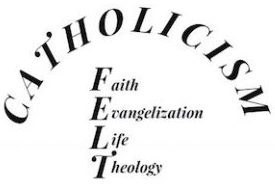“Mom? Dad? Where do babies come from?” one of my children asked recently. Someone might detect a bit of sarcasm if I were to state that this is every parent’s favorite question. We wait with anxiety for this inquiry to be asked! But let’s be realistic: it is probably not every parent’s preferred one. Oh… how about, “Dad? How do babies enter into a mommy’s stomach and how do they come out?” This query certain triumphs over the previous one.
Questions are molded as minds and hearts contemplate the information they are exposed to. Answers are pursued when the human soul undergoes the quest to discover the meaning of life and God. Consequently, Nicodemus devoted himself to reflecting on Jesus’ words and actions throughout the day and seeking critical answers during the evening. On one of these nights, he asked the Birthplace of Wisdom and Life, “How can a person once grown old be born again? Surely he cannot reenter his mother’s womb and be born again, can he?” (Jn 3:4) Although Nicodemus sounded somewhat sarcastic here, we can recognize why he asked this question. His reaction to Jesus Christ’s statement about the obligation to be born from above would probably have been ours, too.
To this interrogation, our Divine Savior offered a noteworthy response, “…No one can enter the kingdom of God without being born of water and Spirit.” (Jn 3:5) The early disciples and those entrusted with the duty to prolong their Christ-given mission clearly comprehend how these words mirror and address the necessity of Baptism for salvation and new life. Baptism is the sacrament  that permits us to be reborn from above by being born of water and the Spirit. This sacrament is embraced within a community of faith, the Church, that intercedes for and supports the baptized so that the individual may continue to grow in the faith after Baptism.
that permits us to be reborn from above by being born of water and the Spirit. This sacrament is embraced within a community of faith, the Church, that intercedes for and supports the baptized so that the individual may continue to grow in the faith after Baptism.
The catechumen (the adult preparing for the sacraments) receives the sacrament of Baptism with his personal faith in the company of a believing assembly given that it is beyond a personal sacrament – it is an ecclesial sacrament. Furthermore, we acknowledge that children also need to be reborn in water and the Spirit. Therefore, they are baptized as soon as possible since their parents, and the Church, cannot deny them the gift of becoming children of God. Indeed, infant baptism testifies that God says yes to us in love even before we can say yes to Him in faith while summoning the community to look after and support one another’s faith journey.
Nevertheless, Baptism situates us on the pathway of salvation and new life, but cannot ensure that we will achieve the goal that is heaven. Therefore, we must look for, encounter, and walk with Christ Jesus daily on this earth-to-heaven journey. He is truly the Way, the Truth, and the Life that will guide, enlighten, and empower us. Certainly, the Second Person of the Trinity became man for our salvation and proposes new life through the sacraments, with the help of His Spirit, and in Him who is the True Vine. (Jn 15:1)
As baptized Christians, we must continuously flourish in the faith if we aspire to live a new life in Christ. We will mature spiritually as we pray unceasingly, love patiently and generously, and selflessly serve those in need. Graces from above will overflow and overwhelm us as we devote extra time reading the Sacred Scriptures, frequent the sacraments of Reconciliation and Holy Communion, and practice the spiritual and corporal works of mercy. And certainly, the Spirit of God will saturate us with heavenly love, joy, and peace if we are docile and obedient to Him. Indeed, we will then know that “whoever is in Christ is a new creation: the old things have passed away; behold, new things have come.” (2 Cor 5:17)
